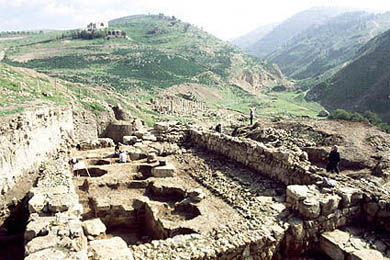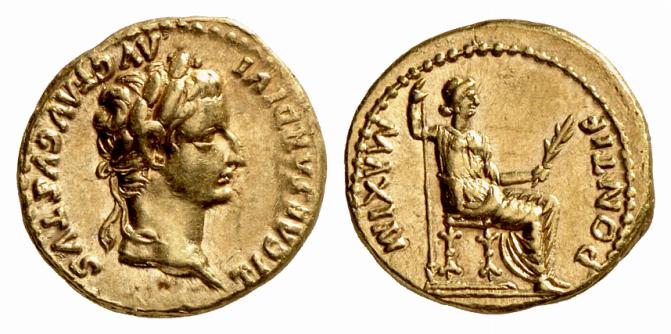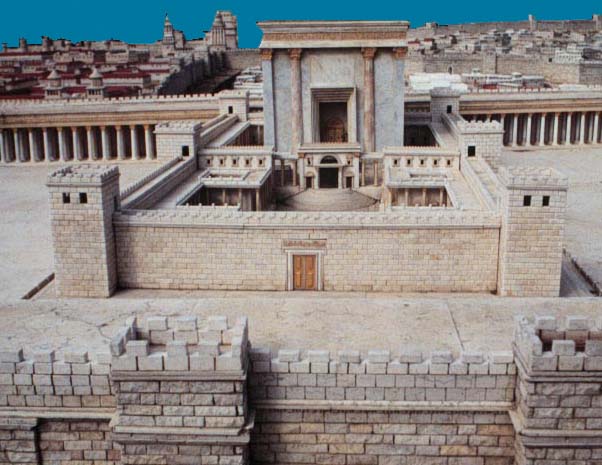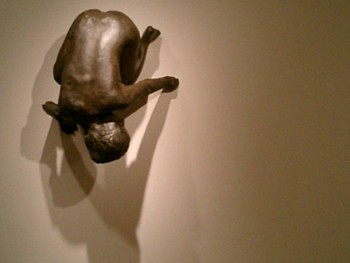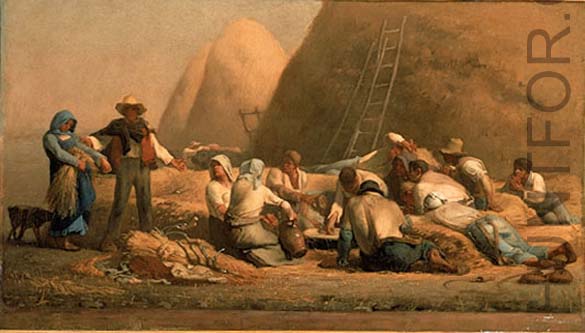Rediscover the True Meaning of Christmas in the Classic TV Christmas Specials

(See Midnight Oil, below.)
Some of my pastor friends will accuse me of having crossed over to the dark side to join in the crass commercialization of Christmas, but I beg to differ. The idea for this sermon series, and the series itself as it has thus far been developed, was the brainchild of one of the pastors in my *covenant group. It has since been preached by all of us (or almost all) except me--and, purportedly, with good results. As the pastors in our group have taken it on in turn, the ideas and resources have accumulated (including some from pastors who have independently developed similar series, and now there are also some available from professional media resources like Midnight Oil Productions), demonstrating what fertile ground there is here. Another pastor friend of mine is always reminding me to meet my congregation on any given Sunday "right where they are." At this time of year, we are completely inundated with media messages about Christmas. Very soon, each and every TV special in the series will be shown, most more than once, on multiple TV broadcast and cable channels. A quick walk into the local department "super-" store (WalMart [TM], Target [TM], etc.) will reveal that these movies are the ones at the top of the shelves--they are the moving images and sounds that create the atmosphere, the context and background for our holiday preparations and family celebrations for the next month. They will be the source of late night jokes, casual references, and allusions in news stories.
Not that we'll be buying everything they are selling. We aren't and we won't. But if we needed some legitimation for preaching the gospel in this mode, we couldn't do better than appeal to Jesus himself. The stock characters and situations in many of Jesus' parables likely originated in the moral and ethical culture in which he was born and grew up. If there had been classic movies in Jesus' childhood, I'm sure he would have used them. When Jesus began to tell the story about the profligate (prodigal) son, for example, everyone around him probably nodded their appreciation, perhaps even predicting that the boy would wind up in a pig pen.
(Image source, http://d1shzm2uca9f83.cloudfront.net/large/remb_vz_varken.jpg)
They had heard this story before. The recognized the characters and the plot. Maybe they could even predict the young man's remorse, his repentance and his return home. But I doubt very much that they predicted the reception with which his father greeted him, or the upheaval in the older brother's expectations. (Luke 15:11-32)
(Image source, http://www.jneiman.com/images/058-prodigal-son.jpg)
Or, to cite another, when Jesus started out a story by telling his audience that "a man was going down from Jerusalem to Jericho,"
(Image source, http://farm3.static.flickr.com/2121/2314500564_fc8ff751a6.jpg)
they may have been able to finish the first sentence without any help: "and fell into the hands of robbers, who stripped him, beat him, and went away, leaving him half dead." People traveling that road were always being mugged. But how many times had their version of the story ended with a Good Samaritan's good deed? (Luke 10:30-37)
(Image source, http://www.wwoaw.net/The%20Good%20Samaritan%20after%20van%20Gogh%20and%20Delacroix%201024%2080.JPG)
As we pursue the telling of the Advent Gospel of expectancy as it appears in the characters and situations of the TV Christmas Classics, we will be on the alert, identifying both where the movies have and, perhaps more importantly, where they haven't followed the twists and turns of the Christmas Story from which they often draw their inspiration.
There are too many such classic movies for any one 4- or 5-week sermon series. I have seen all of the following movies suggested and used more-or-less to good effect: Rudolph the Red Nosed Reindeer, It's a Wonderful Life, Frosty the Snowman, How the Grinch Stole Christmas, Santa Claus is Comin' to Town, Jack Frost (a character in several of the animated classics), The Year without a Santa Claus, The Little Drummer Boy, and A Charlie Brown Christmas.
This year, we will be looking at 5 of the classics (4 Sundays of Advent + Christmas Eve).
November 29, It's a Wonderful Life
Zephaniah 3:14-20, Matthew 20:1-16
December 6, What Rudolph the Red Knows
Isaiah 9:2-7, John 1:1-18
December 13, Sympathy for the Grinch
Isaiah 53:1-5, Luke 1:67-79
December 20, Santa's Cause is Something Profound
Isaiah 60:1-7, Matthew 2:1-12
Christmas Eve, 7:00 pm
December 24, A Charlie Brown Christmas Eve
I'll blog a few ideas about the series each week, beginning now with the 1936 Frank Capra classic, It's a Wonderful Life (60th Anniversary Edition), starring James Stewart and Donna Reed.
Plot Summary, Wikipedia Summary.
What themes from the true meaning of Christmas appear in the movie?
- Humility and Self Sacrifice, for the sake of others. (Philippians 2:5-11)
Saint Augustine of Hippo (354-430), in a famous Christmas Sermon (Sermon 187), rings the changes on this aspect of the Christmas story in his own inimitable way: "Maker of the sun, He is made under the sun. In the Father he remains, From his mother he goes forth. Creator of heaven and earth, He was born on earth under heaven. Unspeakably wise, He is wisely speechless. Filling the world, He lies in a manger. Ruler of the stars, He nurses at his mother's bosom. He is both great in the nature of God, and small in the form of a servant." (Translation source, "Reflections," Christianity Today, Vol. 41, no. 14, Dec. 8, 1997)
No less a preaching light than C.H. Spurgeon could fill a whole sermon (and then some) with reflections on the fact that there was "No Room for Christ in the Inn." Many others have done the same, drawing on images old and new to illustrate the sort of humility that Christ took on.In the movie, George Bailey planned all his life to travel the world, to go to "Italy, Greece, the Parthenon, the Coliseum.” He plans when he returns from his world tour to attend college. Then, he’s going to “build things… airfields, skyscrapers a hundred stories high…bridges a mile long.”

(Image source, http://nighthawknews.files.wordpress.com/2009/07/its_a_wonderful_life_02.jpg)
One by one, George turns all these things down. Eventually he also turns down Mr. Potter’s outrageous offer of a lucrative $20,000/yr. salary – a salary that would more than have provided for his future wife and children.
(The evil millionaire, Mr. Potter. Image source, http://avltheatre.com/ruben/potter.jpg)
On the day of his wedding/honeymoon with bride Mary [!], on his way out of town [once again!], there’s a run on the bank. People are panicking like it's 1933, and they want their money.
(Jimmy Stewart in "It's a Wonderful Life, image source: http://open.salon.com/blog/megan_stewart/2009/01/07/files/jamesstewart4601231343406.jpg)
(Oh, wait, it probably is 1933 or thereabouts, because of the flashback from the final setting: Christmas Eve, 1946; George and Mary married in 1928.) The evil millionaire Mr. Potter sees this as his opportunity to take over the bank, and the town. Once again, George lets go of his rights and lays down his life so he can serve the townspeople – by using all but $2.00 of his honeymoon money to save the bank from collapse. In other words, George Bailey spends his entire life giving up his big dreams for the good of Bedford Falls. - Why do bad things happen to good people?
OR - Does my life really make a difference? Does it matter at all that I lived? (Job 3:3)
The title, or subtitle of this sermon might be, "Living a Life that Counts for All Eternity." The movie was, after all, loosely based on the short story "The Greatest Gift" by Philip Van Doren Stern. On Christmas Eve of 1946, George is broken and suicidal over the misplacing of an $8000 loan (lost by his Uncle Billy while bragging about brother Harry's accomplishments and recognition in the war) and the evil schemes of his nemesis, Mr. Potter. George crashes his car into a tree during a snowstorm and runs to a nearby bridge to commit suicide, feeling he is "worth more dead than alive" because of a $15,000 life insurance policy.
(Image Source, http://esl-bits.net/scripts/WonderfulLife/images/wl_100208.jpg)
George's guardian angel, Clarence, comes to earth to show George how his town, family, and friends would turn out if he had never been born. George has meant so much to so many people; should he really now just throw it all away? The angel, Clarence, shows George throughout how his town, his family, and his friends would have turned out if he had never been born. George meant so much to so many people; should he really just throw it all away? - A Reversal of Fortune (Zephaniah 3:14-20, Matthew 20:1-16)
After Clarence shows George what life would have been like for so many others if he had not been born (Bedford Falls = a slum, Pottersville; Mr. Gower in prison; Uncle Billy in an insane asylum; Harry dead), George prays to live again. Meanwhile the whole town has also been praying for George. His friends and family have collected a huge amount of money to rescue him. His brother Harry arrives just in time to propose a toast to his brother, "the richest man in town." Seeing how many lives he has touched, and the difference he has made, George Bailey truly does have "a wonderful life."
(Image source, http://www.calendarlive.com/media/photo/2006-12/27020557.jpg)
The comparisons with the parable of the Laborers in the Vineyard in Matthew 20:1-16 are somewhat obvious. Jesus' parable is bracketed (19:30 and 20:16) with statements about reversals of place and situation in life: "the first shall be last and the last shall be first." Like an oldest male child (and like George), these first disciples--and especially Peter, James, and John (20:21)--are acutely aware of what they have sacrificed to take on the responsibilities they hold. ("We have left everything to follow you, so what will we have?") That is the set up, the context for Jesus' telling of the parable. The eldest child, the first disciples, and the first workers understand there to be an implicit agreement that the return will be commensurate with the investment of time and labor, that those who work and give more will also get more. But Jesus says that the one who bears ultimate responsibility will also pay the ultimate price (20:17-18). The reward, resurrection life, only comes after crucifixion death. It is this promise--the turning of bankruptcy to restored fortune, shame to praise, oppression to benefaction, mourning song and funeral dirge to festival music and dancing, rejection to acceptance, exhaustion to renewed and inexhaustible capacity for living, hate to love, sorrow to joy and gladness, conflict to reconciliation, judgment and condemnation to redemption and grace, enemies to friends, and disaster to salvation--that is the theme of the song of joy in Zephaniah 3:14-20. The last scene of the movie, the last page of the story is one of restoration and salvation for Job, for George, for Israel, for us, for the disciples--all because also for Jesus himself, crucified and resurrected.
*My covenant group is made up of four great friends from seminary days at PTS, David Casson (Sandia Presbyterian Church, Albuquerque, NM), Jeff Chandler (First Presbyterian Church, Bakersfield, CA), John Hartman (Wake Forest Presbyterian Church, Wake Forest, NC), and Stephen Oglesbee (Clear Lake Presbyterian Church, Houston, TX). We meet every year for conversation, study, prayer, ...and sermon series idea exchange! Thanks, guys.

